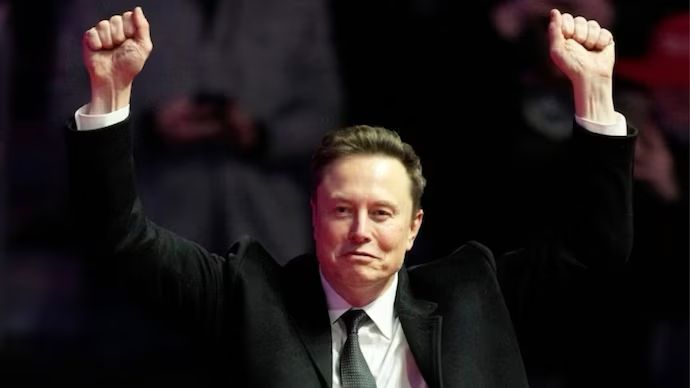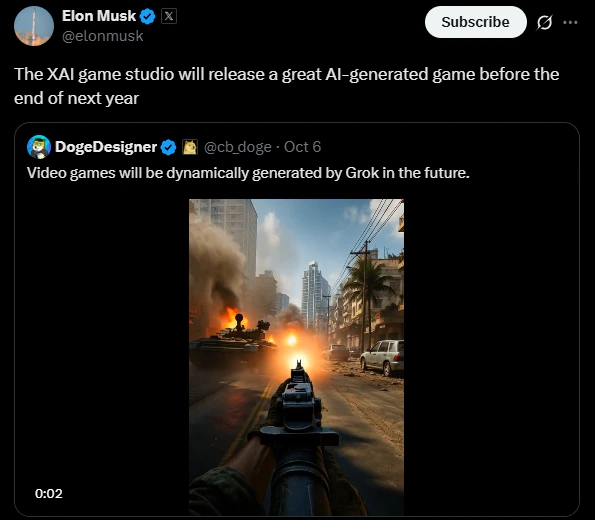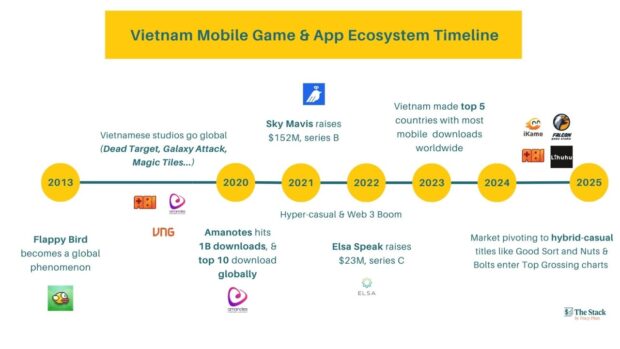
Elon Musk’s AI startup, xAI, is going all in on world models—AI systems designed to understand and simulate the physical world. The company has joined the race alongside Meta and Google to build next-generation AI capable of learning from real-world physics, spatial relationships, and cause-and-effect interactions.
According to the Financial Times, xAI has been quietly recruiting top Nvidia researchers over the summer to accelerate this effort. Among the hires are Zeeshan Patel and Ethan He, both of whom previously worked on physics-based simulations at Nvidia’s Omniverse platform—a key tool for creating realistic digital environments.

From text to tangible worlds
While current AI models like ChatGPT or Grok focus on predicting text or pixels, world models aim to go far beyond that. They’re trained on videos and robotics data, learning how a ball bounces, how light moves, and how objects interact in 3D space. The goal is to give AI something closer to physical intuition—the ability to not just describe the world, but to recreate it interactively.
Gaming first, robotics next
Sources told FT that xAI plans to debut this tech in gaming first, creating a fully AI-generated video game before the end of the year. Musk had teased the idea last year, but this time the plan seems to be in full motion. Long term, the same technology could power robots capable of designing or navigating real spaces—a major step toward AGI-like capabilities.
Nvidia bets big on world models
Nvidia recently said the potential market for world models could one day rival the size of the entire global economy. That’s because the same physics-aware AI that powers immersive games could also drive massive progress in robotics, industrial automation, and autonomous systems.
Building the “Omni Team”
To deliver on this vision, xAI has launched a major hiring push for its “Omni Team”, focused on crafting magical AI experiences beyond text—including image, video, and sound generation. Salaries range between $180,000 and $440,000 per year, while one listing for a “video games tutor” offers $45–$100 per hour to train Grok (xAI’s chatbot) in game design.
The dream—and the doubt
Not everyone’s convinced. Industry veterans like Baldur’s Gate 3’s Michael Douse have argued that the real challenge in gaming isn’t technology but vision. As he put it, “We don’t need more mathematically produced loops. We need more worlds people actually want to engage with.”
Still, Musk’s move marks one of his boldest bets yet—fusing AI’s creative potential with the physics of real life. If xAI pulls it off, this could reshape how we build, play, and even perceive worlds. If not, it’s still another fascinating page in the Elon Musk sci-fi saga.
Would you like me to adapt this version to fit Gamigion’s editorial tone (with subhead emojis, intro hook, and shorter paragraph rhythm for LinkedIn)? It’ll read like a mini-feature from Mobile Gaming Today.







